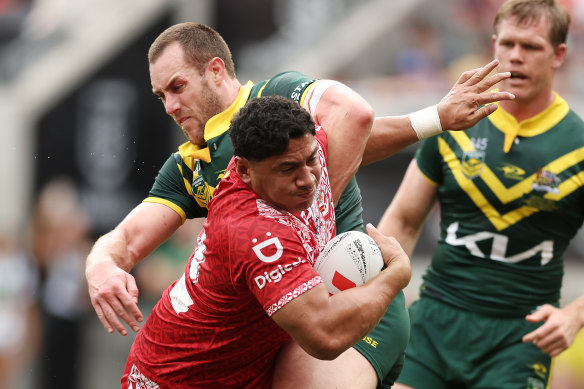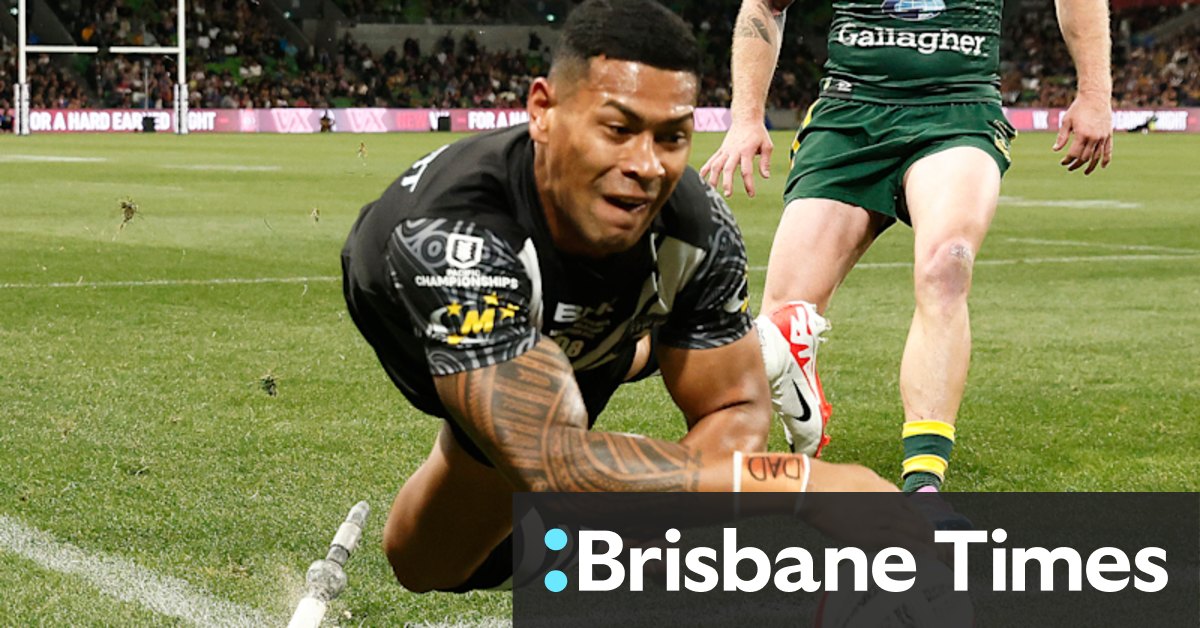Will Origin changes take place?
Debate raged this year regarding how international and State of Origin guidelines would coincide, with the 2025 Samoan and Tongan squads boasting eight men who played for Queensland and New South Wales.
Players can feature in the interstate rivalry if they have only represented tier two countries such as the pacific island nations, while those who have lined up for New Zealand or England can not.

Jason Taumalolo of Tonga is tackledCredit: Getty Images
For instance, Tongan skipper Jason Taumalolo moved from to Townsville when he was 12, yet because he played for the Kiwis cannot do the same for Queensland.
Loading
Meanwhile, Dolphins forward Kulikefu Finefeuiaki moved from Auckland to Ipswich when he was 11, yet since he has not represented the nation of his birth can play for both Tonga and the Maroons.
Origin eligibility guideline changes have been floated to allow players of dual-heritage to feature, provided they played junior rugby league in the respective states before the age of 13.
“Growing up in Queensland, I had this sense of belonging and passion and genuine hate – I don’t know for what reason – for the New South Wales boys,” Tonga and former Kangaroos and Queensland forward Felise Kaufusi told this masthead.
“I’ve got that sense of belonging growing up in Queensland and having pride in our jumper and regional towns … and then I’ve been lucky enough to grow up in a Tongan household where I heard stories of how tough it was growing up.
“It’s the pull of my emotions bringing out how tough they had it … to be able to lift Tonga on the world stage, and that was on the back of Taumalolo and the guys who deferred away earlier.
“They started that, and we’re starting to see as a nation the younger generation coming through and aspiring to play for Tonga.”
Shifting allegiances
Haas’ move from Kangaroos certainty to Samoan leader was arguably the biggest since Andrew Fifita and Taumalolo announced they would feature for Tonga in 2017.
The decision had a “special” impact on Finefeuiaki, who spoke of his desire to also represent Samoa.
“I’m half-Samoan because of my mum, but I grew up on my dad’s side more than my mum’s side. I can speak both, I can understand both, but I love each,” he said.
“When it comes to those games [Tonga v Samoa] … I just go for the ref because I don’t want to start any fights in the house. I hope I get to represent both nations down the track.”
While tier one defections have strengthened competition ahead of the 2026 World Cup – with only Australia (12), Great Britain (three) and New Zealand (one) winning the tournament – it does pose a question of where the buck stops.
While Tongan and Gold Coast prop Moeaki Fotuaika believed proudly both sides of one’s heritage should be acceptable – declaring “it’d be good for your parents, that’s my outlook” – Maroons coach Billy Slater stressed “chopping and changing” must be avoided.
“The one thing we don’t want is one year they’re playing for Samoa, the next year they’re coming back and playing for Australia,” he said on Nine’s Sunday Footy Show after Haas’ defection.
“I think they need to make a decision and stick with it.”

